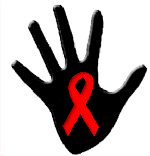
Today is December 1 that means it's World AIDS Day. Every year it comes, many organizations organize many programs and see it off. But have people's attitudes towards HIV and AIDS, HIV infected people and the rising epidemic danger of HIV changed??? The answer is flatly a big NO. If you see the world's stat it's increasingly dangerously. By December 2005, around 40.3 million people are living with HIV and 3.1 million people have died of AIDS. The more alarming data is 4.9 million people are infected with HIV in 2005 alone. If you talk of Nepal, according to data of National Centre for AIDS and STD Control (NCASC) as of 31 October 2006, 8073 Nepalis are living with HIV, and 1186 are in the state of AIDS. 358 people have already succumbed to death because of AIDS. But UNAIDS and other organisation believes that around 75,000 Nepalis are living with HIV and most importantly many of those don't even know. So the risk of further transmission of HIV is increasing very dangerously.
But the main question is as I asked before, are people aware??? Due to vigorous campaign of government, NGOs, INGOs, Community based organisations (CBOs) and other partners, many people have acquired more or less information on HIV and AIDS. But the main irony is people have perceived the information on HIV in negative way. If someone reveals he is HIV infected, the social stigma and discrimination gets start. He cannot live his life more freely and happily because of his society. This is all because of lack of awareness of HIV and AIDS. People know HIV is dangerous virus and thinks people will die right away after infected with HIV. They don't know that even after being diagnosed with HIV people can live their life happily and healthily as any other man if he takes good care of himself. They don't know about the difference of HIV and AIDS. They know the transmission mode of HIV but behave as if it will transfer by eating together, shaking hands or even by meeting the infected person. When told about how HIV transmits and how not, they answer "Why to take risk??" Amid all such problems, the care and support for people living with HIV and AIDS is almost impossible.
Many government, NGOs, INGOs, CBOs and other media campaigns are focused on preventing unsafe sexual behaviour only which has left negative impact on people like associating HIV with prostitution only. Many people think having physical relation many times result causes HIV. This is may be because of the media campaigns where it is stated that having unsafe relation with many people might cause HIV, in Nepali "Dherai Jana sanga asurachit yaun samparka rakhema HIV saran sakcha". Such Ad campaigns have also contributed in negative impact about HIV though were supposed to be for good cause. Yes definitely having unsafe sex with multiple partner increases the risk of HIV infection but also we have to keep in mind that one time unsafe sex with infected person is enough to transmit the HIV, this is what lacked in many advertisements. So we need advertisements that give full information not half which increases the misunderstanding and confusion.
The problem is not only of the uneducated and unaware people but also of "so called" educated and aware people. Many of my friends have finished their under-graduation degree or are doing it but they also lack information on HIV. They read about it in their course book off course but are unwilling to accept those facts. When told lets go and take classes on HIV, they respond that it's not necessary as we've already read in school and also there are many things to be done in life except taking classes on HIV. I had little chat with one of my friend about HIV and no matter how many times I told him about differences between HIV and AIDS, he kept saying "AIDS lageko manche" which means affected with AIDS though we were only talking about HIV. He told me that HIV is a result of wrong deeds. Bewildered I asked how and got replied that it transmits by drugs injection and prostitution.
My friends hesitate to talk about Condom in public and acts as if talking about it is heinous crime. This is not only his or her problem. Many of us have faced similar problems. We don't know how to use condoms until we bought it first time. There are many cases where unsafe sexual behaviour has occurred because people don't know how to use condoms correctly. Still many students are told to read about sexual health at home by teachers. Discussion on menstruation, masturbation, physical changes that adolescence goes through etc are not possible with elders. And to add more woes there are many myths regarding sexual reproductive health due to lack of all knowledge. This is partly because of our social structure where talking about sexual reproductive health is considered as taboos and hence banned. So we need strong campaign to break this shield first then only we will be able to prevent the HIV and AIDS. Until and unless there is no room to discuss about the SRH problems and environment to share information and knowledge, the HIV/AIDS prevention campaign will not work effectively.
This is the scenario and we are talking about preventing further transmission of HIV though there are many loop holes in our approach. We need to review our intervention approach as soon as possible and have new approach where complete information is given. Till then we will be observing World AIDS's day with many programs and many new people will be infected with HIV because of lack of proper knowledge.




No comments:
Post a Comment